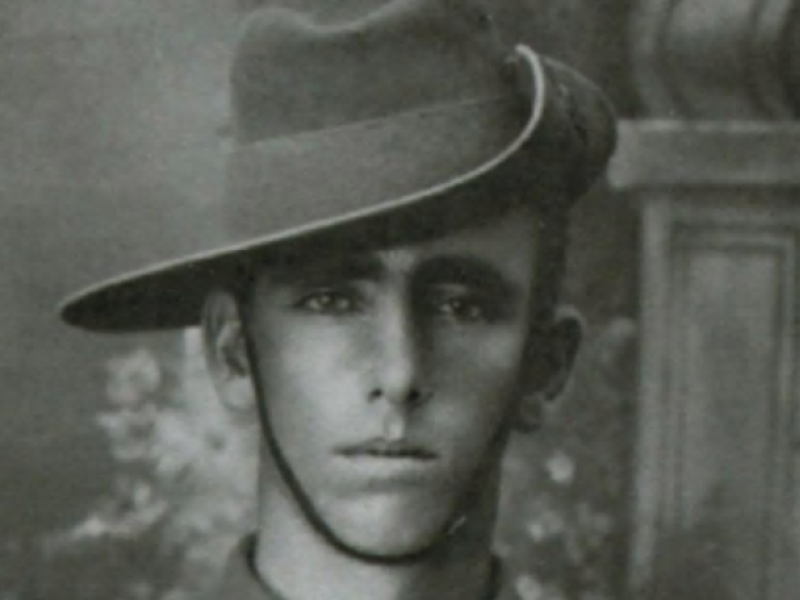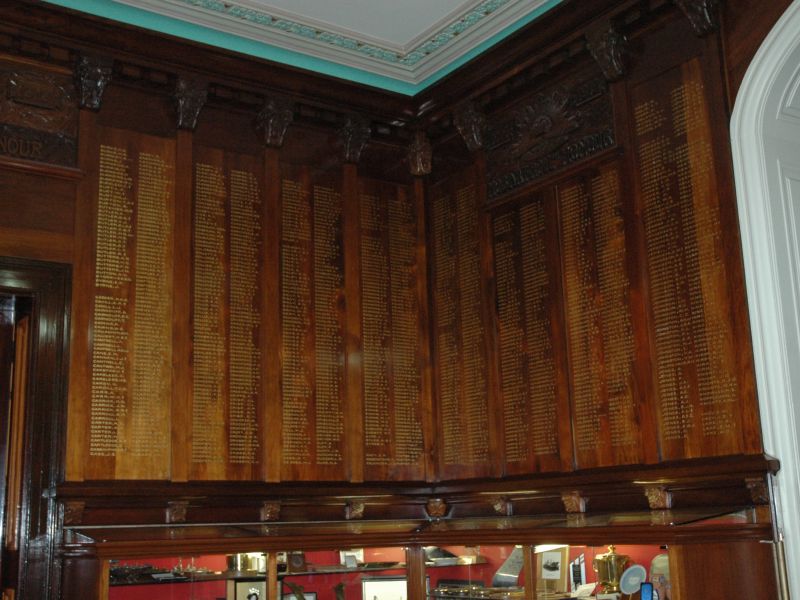Private Nathaniel Robert Abbott, 26th Infantry Battalion, AIF
Nathaniel Abbott was born in 1892 in Evandale, Tasmania to George and Jane Abbott. He was one of nine children and received his education at Tasmania State School. In 1914, he was working as a labourer in Hobart.
Abbot enlisted in the Australian Imperial Force on the 18th of May 1915, aged just 22. He was assigned to the 26th and embarked on troopship Aeneas in June that year.
He joined his unit on the Gallipoli Peninsula in October and one week later, was wounded and evacuated. He re-joined his unit in Alexandria in March 1916 and arrived on the Western Front in late July for an attack near the French village of Pozieres. The German forces held the high ground, launching devastating attacks on advancing troops.
The offensive at Pozieres took 42 days. Australian divisions finally succeeded in capturing Pozieres on the 5th of August but not without tremendous cost.
Allied casualties totalled a staggering 23,000 men - captured, wounded or killed. Abbott was wounded a second time, sustaining injuries to his arms, hands and legs. He was invalided to England for a month, eventually re-joining his unit in Belgium in 1917.
The 26th were preparing to attack German positions around Menin Road in Ypres. They faced well-entrenched German defensive positions including concrete bunkers and barbed wire. On the first day of the battle, Abbott was wounded for a third time as a result of shellfire, one of 5,000 casualties.
He did not re-join his unit until April 1918 for the German spring offensive. In August 1918, the 26th took part in the Battle of Amiens.
In the early hours on the 8th of August 1918, allied planes dropped smoke bombs to disorientate the enemy, followed by a relentless barrage of troops and tanks across no-mans-land. The enemy were taken by surprise and were quickly devastated.
The 26th were attacking positions near Villers-Bretonneux when Private Abbott was wounded for a fourth time, shortly after going over the top. He had been hit by a shell and was wounded in the head, and in the legs.
During the advance his comrades tried to assist their injured mate by moving him to a shell-hole and stabilising his leg with a splint made from a rifle. He was later rescued by stretcher bearers and taken to the 83rd General Hospital at Boulogne.
Abbott remained in hospital for two days before succumbing to his wounds on the 10th of August 1918. He was 26 years old.
After his death, his bereft family remembered Nathaniel Abbott in the local newspaper, writing:
“When peace reigns over the country side, our thanks shall be to the lads that died. Oh silent hearts, can they hear us tell? How peace was won by the men that fell.”
Meghan Adams, Researcher

 Australian War Memorial
Australian War Memorial